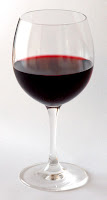 Not sure if this is the best choice for a headline... This is the original source: Education, alcohol use and abuse among young adults in Britain. Soc Sci Med. 2010 Jul.
Not sure if this is the best choice for a headline... This is the original source: Education, alcohol use and abuse among young adults in Britain. Soc Sci Med. 2010 Jul.The findings come from a study carried out at the London School of Economics in which researchers tracked the lives of thousands of 34-year-old women and men, all born in the UK during the same week in 1970.
The report states: "The more educated women are, the more likely they are to drink alcohol on most days and to report having problems due to their drinking patterns.
"The better-educated appear to be the ones who engage the most in problematic patterns of alcohol consumption."
They may have more active social lives or work in male-dominated workplaces with a drinking culture. As girls, they may have grown up in middle-class families and seen their parents drink regularly.
According to the researchers, higher educational attainment is associated with increased odds of daily alcohol consumption and problem drinking. The relationship is stronger for females than males. Individuals who achieved high educational test scores in childhood are at a significantly higher risk of abusing alcohol across all dimensions.
References:
Cleverest women are the heaviest drinkers. Telegraph.
Cleverest women are the heaviest drinkers. Telegraph.
Education, alcohol use and abuse among young adults in Britain. Huerta MC, Borgonovi F. Soc Sci Med. 2010 Jul;71(1):143-51. Epub 2010 Mar 31.
Image source: Wikipedia.